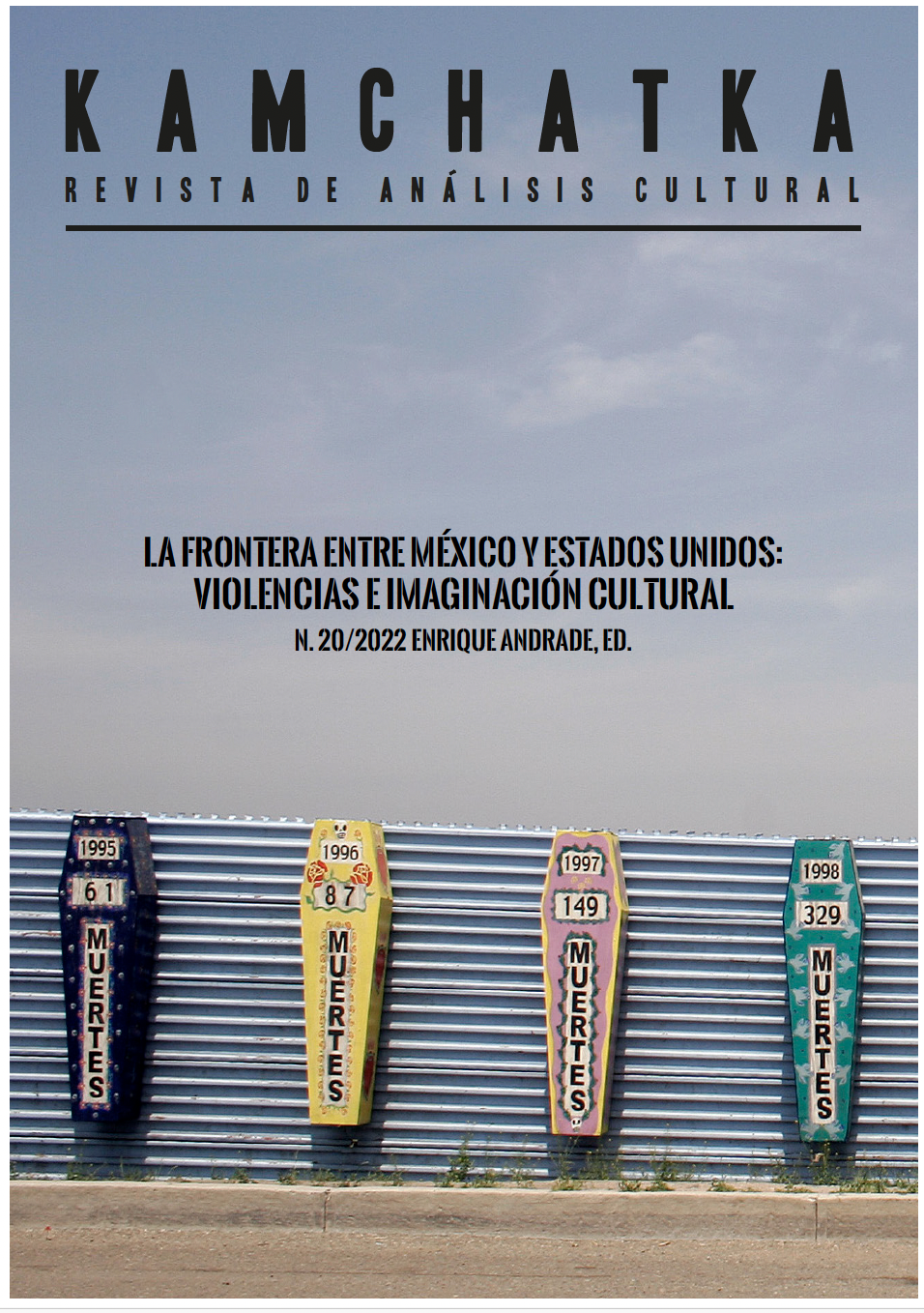No Domestication, Politicization, Erotism and Cruelty in Pilar Quintana’s and Ena Lucía Portela’s fairy tales rewritings
DOI:
https://doi.org/10.7203/KAM.20.23760Keywords:
patriarchy, gender, representation, subversion, Pilar Quintana, Ena Lucía Portela Abstract
Abstract
his text introduces an aproach to “Caperucita se come al lobo”, by Pilar Quintana (Colombia, 1972), and “El sueño secreto de Cenicienta”, by Ena Lucía Portela (Cuba, 1972), from the idea that both stories —seen as cultural artifacts with a clear gender awareness— function as revisionist writings of the classic tales, that empower and politicize female characters which traditionally have been deprived of their own voice or which have been characterized by their submission. While, with a parodic and satiric tone, they resignify and question certain elements-symbols related to gender identity constructions, their stereotypes, and patriarchal violence, to articulate their own revindications and critics.
 Downloads
Downloads
 References
References
Bacchilega, Cristina (1997). Postmodern Fairy Tales. Gender and Narrative Strategies. Pensilvania: University of Pensilvania Press.
Bourdieu, Pierre (2000). La dominación masculina. Barcelona: Anagrama.
Carter, Angela ([1990] 2016). Cuentos de hadas de Angela Carter. Madrid: Impedimenta.
Farish Kuykendal, Leslee y Sturm, Brian W. (2007). “We Said Feminist Fairy Tales, Not Fractured Fairy Tales! The Construction of the Feminist Fairy Tale: Female Agency over Role Reversal”. Children & Libraries. The Journal of theAssociation for Library Service to Children. Winter 2007, vol. 5, n.º 3, pp. 38-41.
Gilmore, David (2008). “Culturas de la masculinidad”, en La masculinidad a debate, de À. Carabì y J. M. Armengol (eds.), Barcelona: Icaria, 33- 46.
Hasse, Donald (2004). “Feminist Fairy-Tales Scholarship”, en Fairy Tales and Feminism. New Approaches, 1-36. Detroit: Wayne State University Press.
Lagarde, Marcela (2001). Claves feministas para la negociación en el amor. Managua: Puntos de Encuentro.
McAra, Catriona y Calvin, David (eds.) (2011). Anti-Tales: The Uses of Disenchantment. Reino Unido: Cambridge Scholars Publishing.
Portela, Ena Lucía ([2008]). “El sueño secreto de Cenicienta”, en El viejo, el asesino, yo y otros cuentos, Doral FL: Stockcero, 34-44.
Quintana, Pilar ([2008] 2012). “Caperucita se come al lobo”, en Caperucita se come al lobo, Santiago de Chile: Ed. Cuneta, 34-44.
Richard, Nelly ([2008] 2018). Feminismo, género y diferencia(s). Santiago de Chile: Editorial Palinodia.
Rowe, Karen (1986). “Feminism and Fairy Tales”, en Don’t Bet’on the Prince, de Jack Zipes (ed.), Nueva York: Routledge, 209- 224.
Sanz, Marta (2018). Monstruas y centauras. Nuevos lenguajes del feminismo. Barcelona: Anagrama.
Segato, Rita (2016). La guerra contra las mujeres. Madrid, Traficantes de sueños.
Spivak, Gayatri (2009). ¿Pueden hablar los subalternos? Traducción y edición crítica de Manuel Asensi Pérez. Barcelona: Macba.
Valdés, Teresa y Olavarría, José (1997). “Introducción”, Masculinidad/es. Poder y crisis, de Teresa Valdés y José Olavarría (eds.), Santiago de Chile: Ediciones de las mujeres n.º 24, 9-15.
Valencia, Sayak (2014). Capitalismo gore. Santa Cruz de Tenerife: Melusina.
Zipes, Jack ([1987] 2012). Dont’ Bet on the Prince: Contemporary Feminist Fairy Tales in North America and England. New York: Routledge.
Zipes, Jack (2006). Fairy Tales and the Art of Subversion. The Classical Genre for Children and the Process of Civilization. Nueva York: Routledge.
Downloads
Published
How to Cite
-
Abstract891
-
Artículo PDF (Español)463
Issue
Section
License
This journal provides an immediate free access to the content on the principle that freely make investigation available to the public, which promotes an increased global knowledge exchange.
Unless otherwise indicated, texts published in this journal are under the license Attribution-NonComercial 4.0 by Creative Commons. These texts may be copied, distributed and publicly communicated whenever the publication’s author and title are quoted and whenever they are not used for commercial purposes. In any case, intellectual property of the articles and its potential economic rights entirely belong to its authors.
The full license can be consulted on https://creativecommons.org/licenses/by-nc/4.0/. We encourage authors to disseminate papers published in Kamchatka. Journal of cultural analysis electronically, in institutional digital repository or in their websites.





